Teaching Now About COVID-19 During the Outbreak
Some professors aren't waiting until next semester to teach about the pandemic
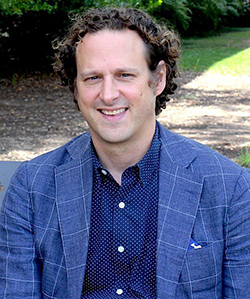 As COVID-19 began to spread across the U.S. during spring break, Dr. Gavin Yamey knew his global health policy class had to adapt. Not only by moving online, but addressing the crisis as it continues to unfold.
As COVID-19 began to spread across the U.S. during spring break, Dr. Gavin Yamey knew his global health policy class had to adapt. Not only by moving online, but addressing the crisis as it continues to unfold.
“From a teaching point of view,” he said, “we have to seize this moment.”
Yamey is one of many Duke professors rapidly rearranging their teaching plans for this semester to incorporate responses to – and lessons from – the ongoing pandemic.
Yamey’s global health policy class is structured around Policy Idol, a team-based talent show-style exercise in which teams of students are assigned a country and tackle a policy challenge there with the help of mentors from RTI International. Students were already working on how to improve early childhood development in their countries, but after spring break Yamey presented a new challenge: COVID-19 preparedness and response.
“They've done the groundwork to understand the health issues in their countries, how the health system is structured and funded and who is delivering services,” he said. “Now we are completely redirecting them to develop policy programs to prevent the spread of COVID-19 in that country, to understand what they can do to prevent, suppress and mitigate infection, and to care for infected patients, understanding their country's context.”
“Now there’s been a sudden shift to apply all those things which we have learned to something which is real for all of us, right now.”
-- student Siddhesh Zadey
“Until now, our focus was more on the theory and the mechanics of policymaking,” said Siddhesh Zadey, a student in the class assigned to Uganda. “Now there’s been a sudden shift to apply all those things which we have learned to something which is real for all of us, right now.”
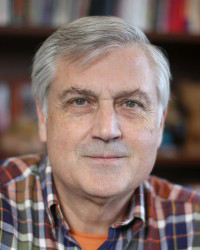 Guest lecturers included Dr. Jonathan Quick, an adjunct professor of global health at Duke and author of “The End of Epidemics: The Looming Threat to Humanity and How to Stop It.”
Guest lecturers included Dr. Jonathan Quick, an adjunct professor of global health at Duke and author of “The End of Epidemics: The Looming Threat to Humanity and How to Stop It.”
Quick walked the students through the cycle of panic and neglect that fuels funding to fight pandemics during and between outbreaks.
“In global health,” Quick said during the virtual session, “what gets measured, gets done.”
Not only are students assessing the outbreaks and capabilities in their assigned countries, they’re also adapting their responses in real time, reacting to changes in conditions between classes.
“This is the way public health goes, things happen,” said student Lindsay Dahora, assigned to Guatemala. “It’s been such a valuable experience to work on something that literally is changing every single day, and to consider what pieces of the puzzle they haven't addressed that we think could help.”
----
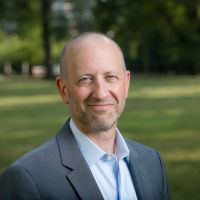 An ocean away at Duke Kunshan University, Noah Pickus is dean of faculty development and had no plans to teach this semester. Instead, Pickus – a public policy professor – collaborated with global health scientist Ben Anderson to create a new course on international pandemic response that launched in late March.
An ocean away at Duke Kunshan University, Noah Pickus is dean of faculty development and had no plans to teach this semester. Instead, Pickus – a public policy professor – collaborated with global health scientist Ben Anderson to create a new course on international pandemic response that launched in late March.
“We have students across China and the world who are living through what will be a defining moment in their lives,” Pickus said. “Everything we've been teaching them about an interdependent global world is coming to bear right now.”
The course responds to the evolving pandemic by connecting students with the professionals who are truly involved – such as Dr. Chris Woods, a Duke professor and chief of infectious diseases at the Durham VA hospital, who spoke to the class.
“They are hearing from people who are informed and actually on the front lines,” Pickus said. “This is an opportunity to show students how everything we’re teaching them about applied knowledge and interdisciplinarity matters, in real time. And it's a good test for us as faculty, because if we can't respond to that, something's wrong.”
----
Dr. Alison Clay treated patients during the SARS epidemic in 2003. Now assistant dean for clinical education and an assistant professor of surgery and medicine in Duke’s School of Medicine, Clay quickly moved to create the “Responding to Pandemics: Past, Present, and Future” course for medical students. She collaborated with Nancy Knudsen, assistant dean for learning environment, professor of anesthesiology, and associate professor of surgery.
“Our students are exceptional,” Clay said, “and we wanted to make sure that through this course they are given opportunities to be better informed and to help patients in our health system and each other.”
----
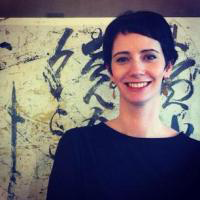 At Duke Law, Jayne Huckerby, director of the school’s international Human Rights Clinic, launched a lecture series called “COVID-19: Advancing Rights and Justice During a Pandemic,” created with peers at Columbia.
At Duke Law, Jayne Huckerby, director of the school’s international Human Rights Clinic, launched a lecture series called “COVID-19: Advancing Rights and Justice During a Pandemic,” created with peers at Columbia.
“There was a very strong need in the current environment for talking through the impacts of government responses to COVID-19, and what human rights-compliant policies look like,” Huckerby said.
The first lecture in the twice-weekly series focused on government overreach and featured speakers from the United Nations and human rights watchdog organizations.
“We're very alert to the challenges in the current moment of governments putting into place emergency measures which involve suspending human rights obligations, with the prospect these exceptional measures might be normalized after the pandemic is over,” Huckerby said. “There is a really urgent need for students, academics and practitioners to be mindful of this right now, in this moment.”
---
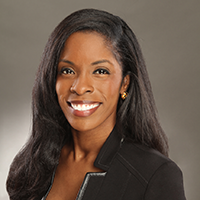 At the Sanford School of Public Policy, students across various courses are drafting research memos for state policymakers and advocates; assessing what national responses to the pandemic say about a country’s quality of governance; and devising strategies for philanthropists who might want to help but aren’t sure how their private money could have the most leverage.
At the Sanford School of Public Policy, students across various courses are drafting research memos for state policymakers and advocates; assessing what national responses to the pandemic say about a country’s quality of governance; and devising strategies for philanthropists who might want to help but aren’t sure how their private money could have the most leverage.
“Like many professionals around the world who are doing important, policy-related work from home, our students are doing the same,” said Deondra Rose, an assistant professor of political science at Sanford.
------
“This class is contributing to our future responses as global health practitioners if something like this happens again, and also prepares us to advocate for better preparation for when it does happen.”
-- student Anna Lehmann
As she prepared for her Policy Idol presentation in Yamey’s class, Anna Lehmann – assigned to Cambodia – said switching the class to COVID-19 made it feel more relevant.
“There would be something odd about focusing on another public health topic right now,” she said. “It’s been great to see the whole global health field and the broader scientific community pull together to achieve something and focus on this.”
Lehmann said the class is providing invaluable prep for a planned career as a physician and researcher.
“This class is contributing to our future responses as global health practitioners if something like this happens again,” she said, “and also prepares us to advocate for better preparation for when it does happen.”